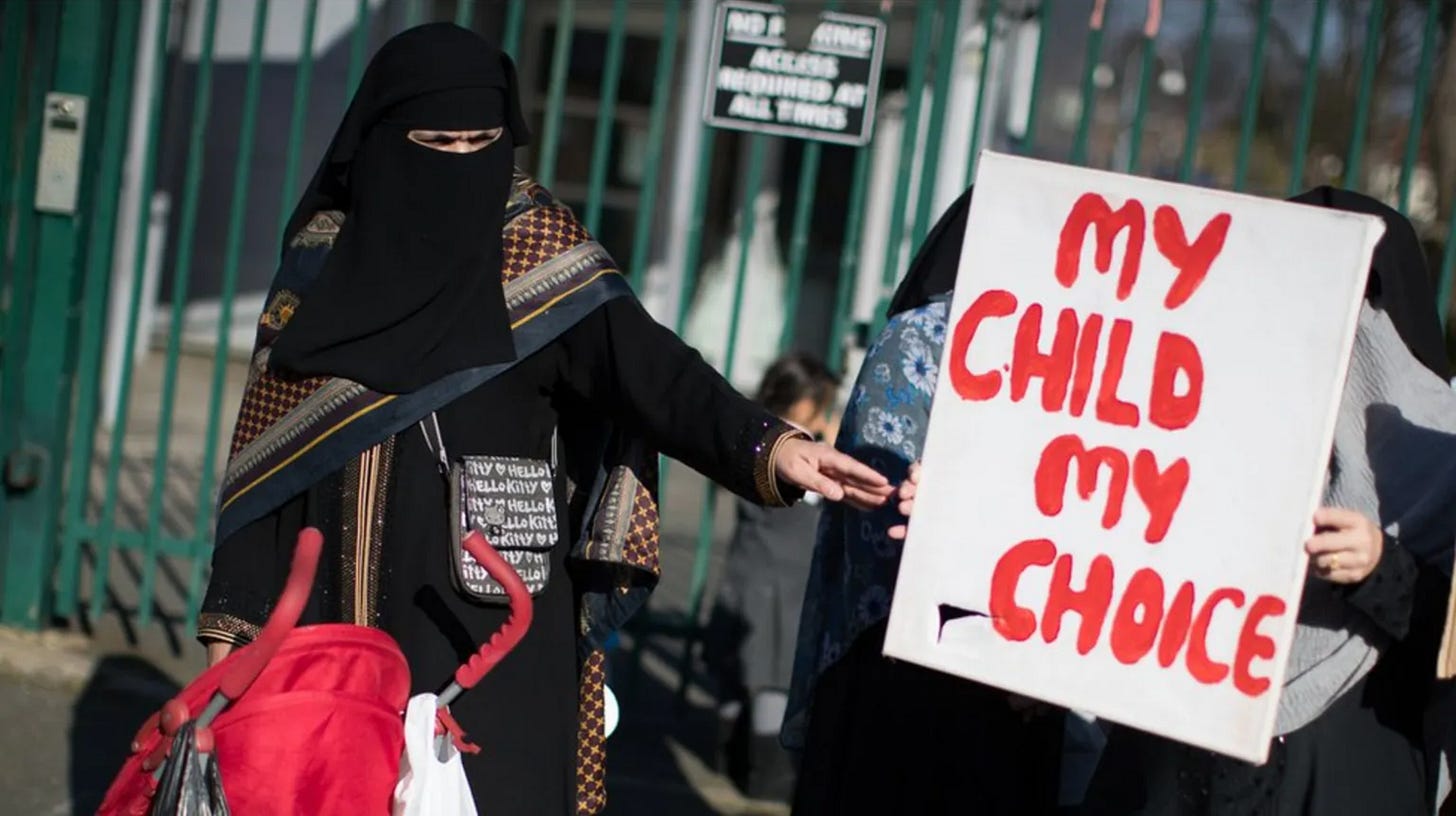Written by Noah Carl.
While the Great Awokening was in its acceleration phase during the spring of 2019, reports began coming out about protests outside a primary school in England. The protestors, it emerged, were parents who opposed the teaching of “LGBT inclusive” content to their children. Since this was the middle of the Great Awokening, one naturally assumed that these parents were anti-woke activists fed up with LGBT propaganda—or perhaps conservative Christians. It soon emerged that they were overwhelmingly Muslim.
Interestingly, the protests had been sparked by a similar dispute at another local school in which several hundred pupils were withdrawn because their parents objected to lessons “promoting gay and transgender lifestyles”. Once again, the people involved were overwhelmingly Muslim.
Of course, this was not the first time that Muslim communities in the West had expressed their opposition to the “LGBT movement”. Two years earlier, Australia held a referendum on legalising gay marriage, which Muslims voted overwhelmingly against. Although the “yes” side ultimately won with 62% of the vote, it received the least support in the heavily Muslim constituency of Blaxland, where only 26% of voters supported “marriage equality”.1

From Southeast Asia to Sub-Saharan Africa, Muslims hold deeply conservative attitudes on issues like abortion, prostitution, euthanasia and homosexuality—as a 2013 Pew Research survey revealed. It’s therefore hardly surprising that Muslims living in the West do as well. Of course, in most Western countries, Muslims are relatively poor and tend to vote for left-wing parties—even if they disagree with much of those parties’ social agenda. (In any case, many right-wing parties are barely more conservative than their left-wing counterparts when it comes to the aforementioned issues.)

The situation is rather different in the US, where thanks to selective immigration Muslims enjoy high average socioeconomic status.2 And while Muslim Americans today lean heavily toward the Democrats (or, in the most recent election, the pro-Palestinian Green Party), this was not always the case. In the 2000 election, a remarkable 78% of them voted for George W. Bush. Unsurprisingly, they swung away from the Republicans as soon as Bush unleashed the “War on Terror”.
Muslims’ low incomes, and hence their overrepresentation among recipients of government assistance, is not the only reason they tend to vote for left-wing parties in Europe. The other obvious one is that most right-wing parties are either openly anti-Muslim or widely perceived as such. Even Britain’s Conservative Party, which has fielded several Muslim ministers, is generally perceived as anti-Muslim—owing to provocative statements made by certain figures, as well as the views of most Tory voters. This is in contrast to left-wing parties, which often trip over themselves to accommodate Muslims and in return get a reliable voting bloc.3



